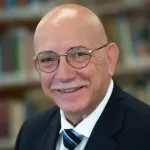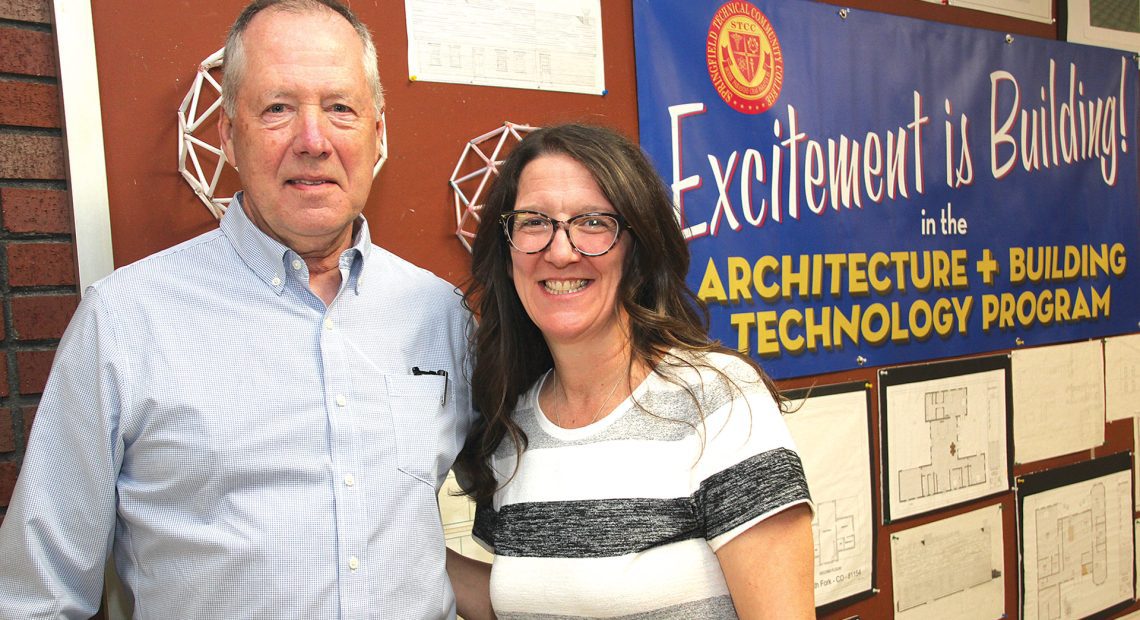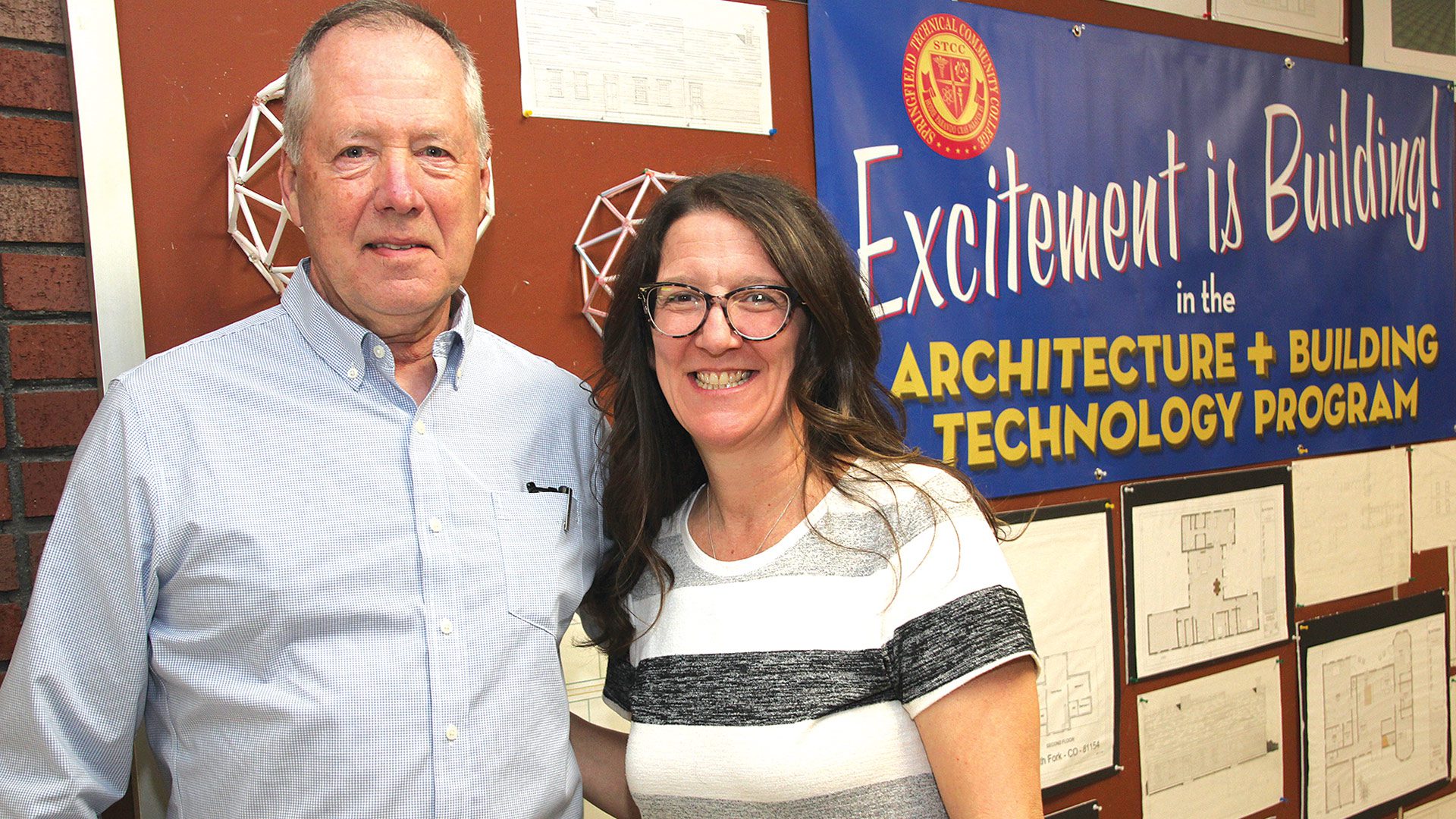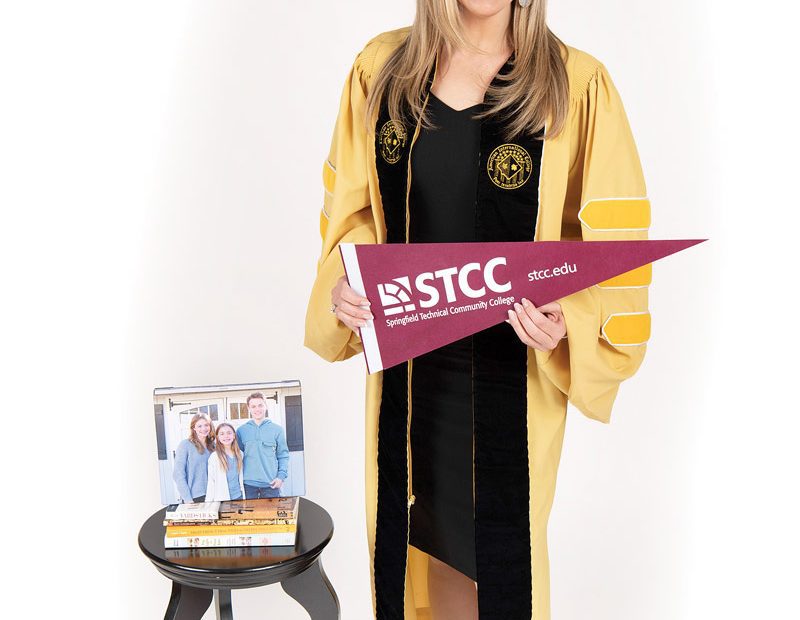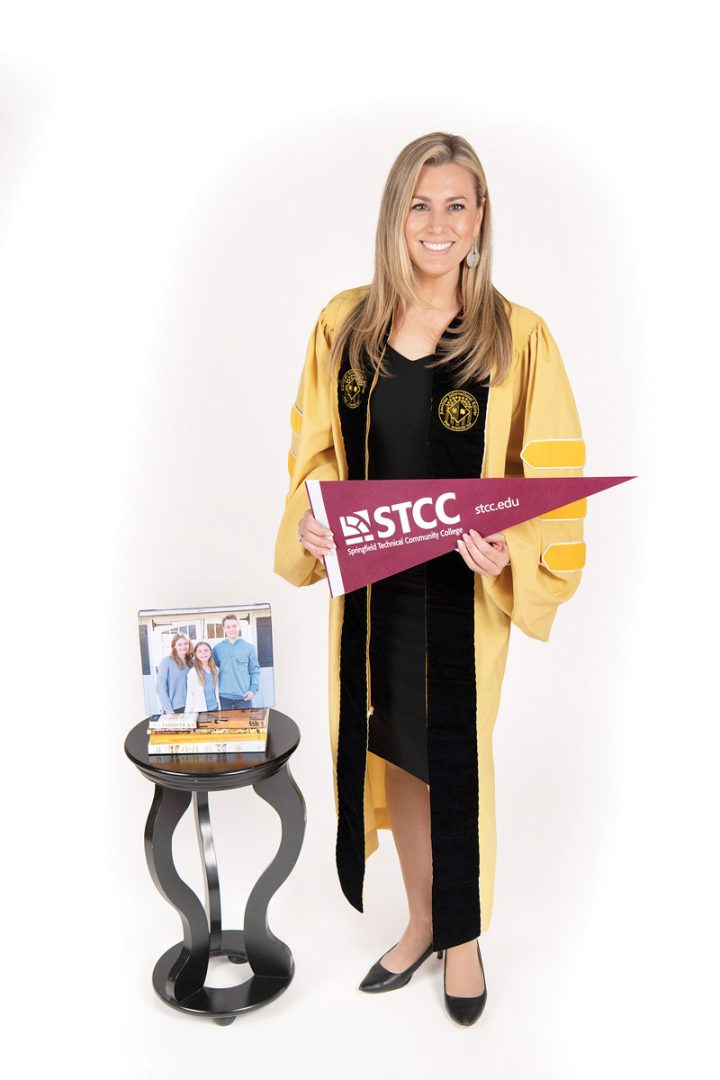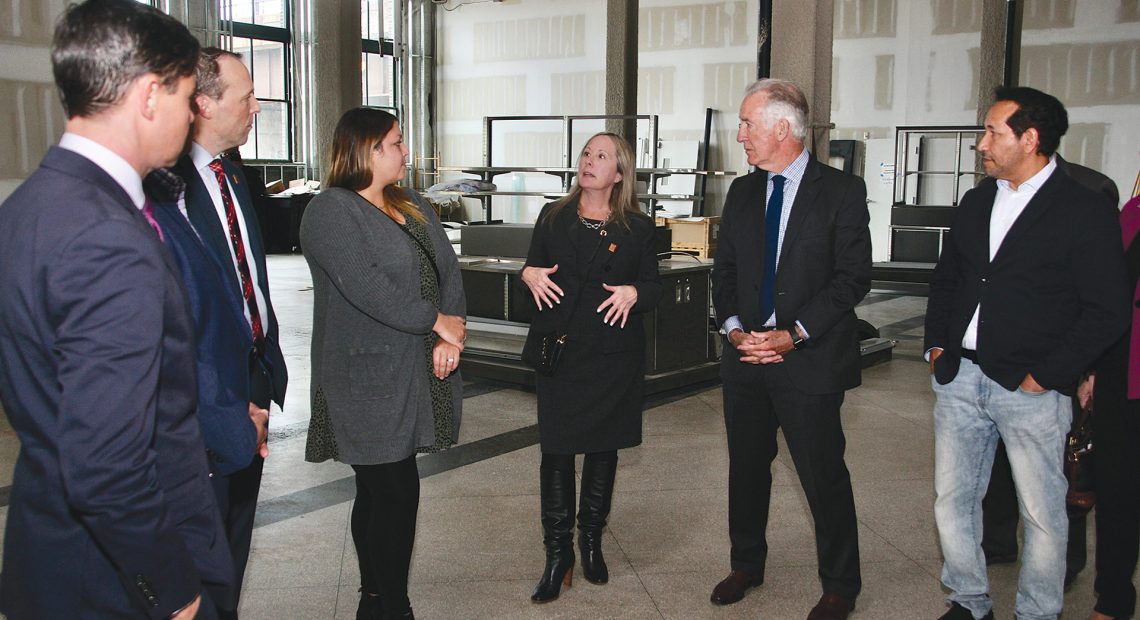Defense Mechanism
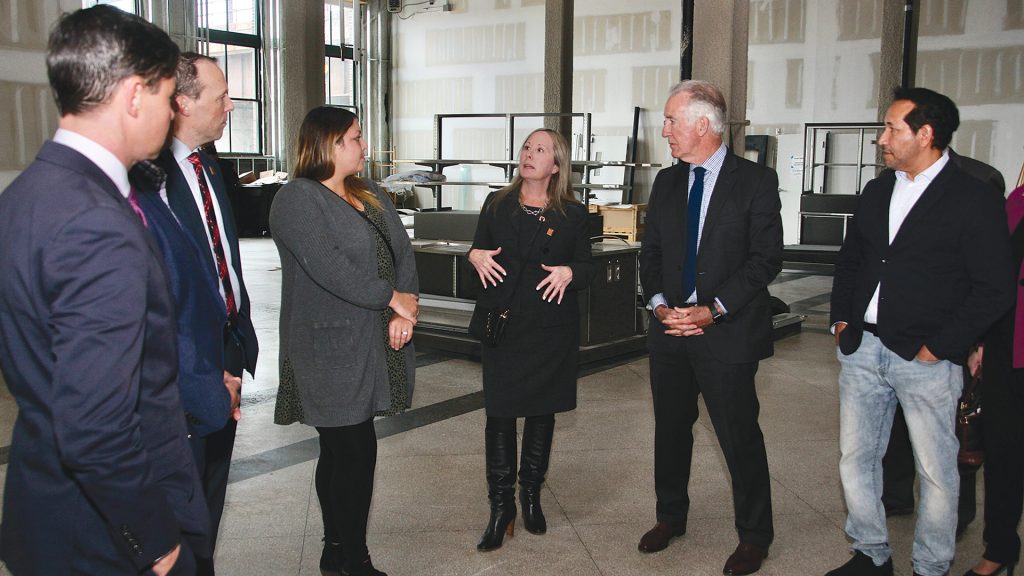
STCC’s Mary Kaselouskas tours the future site of the SOC and cyber range with U.S. Rep. Richard Neal and other stakeholders.
By now, Mary Kaselouskas says, the vast majority of people understand the importance of cybersecurity.
“Everyone is fully aware of the threats out there, how people become victims of cybercrime and the impact on an organization that’s involved in a breach,” said Kaselouskas, vice president ands chief information officer at Springfield Technical Community College (STCC).
What they might not know, she added, is the critical shortage in the cybersecurity workforce, with an estimated 20,000 more professionals needed in Massachusetts alone, not to mention about 1 million in the U.S. and 3 million around the world.
That’s why she, and other officials at STCC, around the state, and across the region’s IT sector are celebrating a new initiative to promote the development of a diverse cybersecurity workforce locally, with the goal of improving cyber resiliency in the Commonwealth.
U.S. Rep. Richard Neal, state and academic officials, and IT industry leaders were on hand at Union Station in Springfield on Oct. 31 to announce $1,462,995 in state funding will allow STCC to establish a security operation center, or SOC, at Union Station that will provide threat monitoring and other cybersecurity services for Commonwealth municipalities and small business and nonprofit customers. The funds will also establish a cyber range, a new testing lab to mirror real-world IT environments to provide hands-on training opportunities to local companies, universities, and other cyber-focused organizations.
“We’re seeking to establish Massachusetts as the national leader when it comes to cybersecurity infrastructure. We’re bringing together leading academic partners and businesses to support cyber resiliency and workforce development in the Commonwealth.”
“I have been involved with this for quite a while, and a steering committee was established many years ago, looking at how to address a shortage of cybersecurity workers in Springfield and the Pioneer Valley,” Kaselouskas said, noting that partners on the project include the Springfield Redevelopment Authority, a new entity called CyberTrust Massachusetts, the MassCyberCenter, and local colleges and universities, among others.
As the grant recipient, STCC will staff and operate the Union Station facility in partnership with a consortia of area higher-education institutions, including Bay Path University, UMass Amherst, Western New England University, Elms College, and Springfield College, each of which bring a range of undergraduate certificate and degree programs in IT/security, cybersecurity, computer science and programming, digital forensics, and criminal justice.
The SOC, Kaselouskas explained, is “a physical location at Union Station that monitors, detects, and responds to cyber threats 24/7/365, protecting organizations’ assets. A lot of companies don’t have the resources for a fully operational SOC, or can even afford to have managed SOC operations.”
The center will have full-time employees but also offer training opportunities for students at area colleges by way of internships and work-study programs, she added. “This will operate as a business once the grant money is gone. We haven’t discussed fees, but we will have an employee working in business outreach to get customers on board that will utilize the facility.”
Meanwhile, the cyber range will allow both students and employees of companies and municipalities to experience simulated threats in a virtual environment, with hands-on training in live-fire attacks, blue-team/red-team events (in which one team attacks a system and the other defends it), and other training models, potentially leading to certification in security fields for students.
“That’s the training part of this,” Kaselouskas told BusinessWest, noting that area colleges and universities will incorporate the cyber-range software into courses. “If a student is enrolled at STCC in the cybersecurity program, they may take a few courses that use the cyber range — so it’s not a whole course, but a component of a course.”
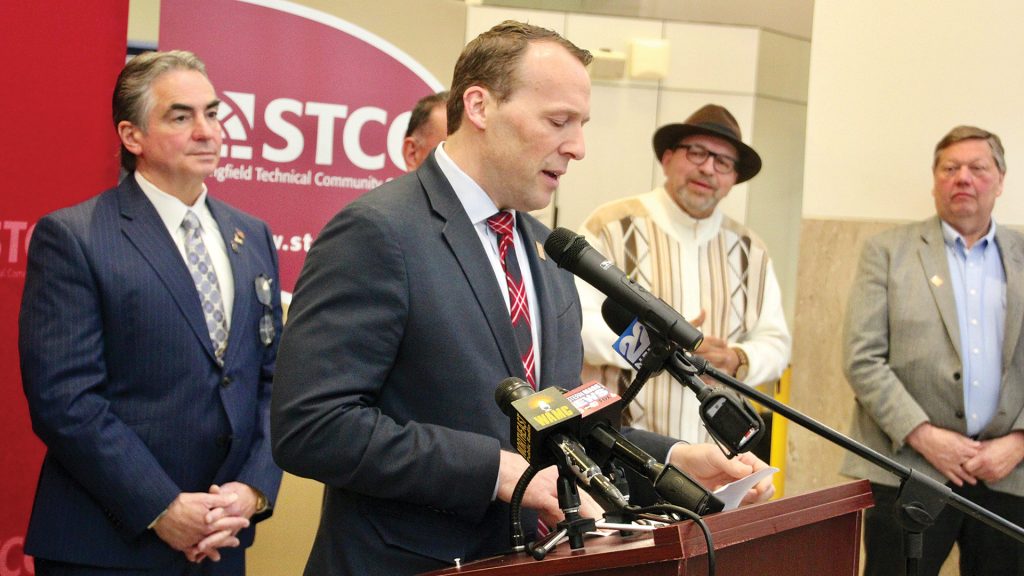
STCC President John Cook says the cyber project at Union Station will be transformative for the region and higher education.
The grant to STCC will cover renovation and construction of the Union Station space, which is estimated to open in the first half of 2024. The facility will include a classroom and a conference room for up to 60 people, able to accommodate those cyber-related events and to serve as a space for collaboration, in addition to separate classroom space, workstations for use by academic partners, offices for facility staff, a tech-support area, a kitchen, and storage.
As part of a site-based service arrangement, STCC will provide administrative oversight for the facility, including all human-resources functions for employees and hiring of key personnel, plus the establishment of electronic-systems management. The facility will also be overseen by a steering committee of public, private, and academic stakeholders, which will include the Springfield Redevelopment Authority, the owner of Union Station.
Dollars and Data
The Union Station project is just one component of a more than $3.7 million outlay to bolster cybersecurity resilience — and the related workforce — across the state. The announcements were made during the sixth Massachusetts Cybersecurity Forum at Bridgewater State University, which brought together 100 executives from companies, municipalities, and leading universities.
The awards included a $1,086,476 grant to support the launch of CyberTrust Massachusetts, a new nonprofit that will work with business and academia statewide to grow the cybersecurity talent pipeline by increasing career pathways for underrepresented groups, and promote security operations to address the day-to-day needs of resource-constrained municipalities, nonprofits, and small businesses.
The Commonwealth also announced the $1,462,995 award to STCC and $1,200,000 to Bridgewater State University to establish SOCs and cyber ranges in the two cities.
“We’re seeking to establish Massachusetts as the national leader when it comes to cybersecurity infrastructure,” Gov. Charlie Baker said during the announcement event, adding that “we’re bringing together leading academic partners and businesses to support cyber resiliency and workforce development in the Commonwealth.”
CyberTrust Massachusetts was launched to address four key imperatives for the state:
• Undersecurity, as organizations across Massachusetts, especially municipalities, small businesses, and nonprofits, are challenged to find affordable resources to defend themselves against growing cybersecurity threats and maintain cyber resiliency;
• Underemployment, highlighted by the aforementioned 20,000 cybersecurity job openings in Massachusetts, and the fact that communities of color and women are underrepresented in the cybersecurity workforce and are frequently overlooked for employment due to a lack of opportunity to obtain hands-on cybersecurity experience;
• Employee training, as businesses across the Commonwealth typically do not have a location to send their employees to receive cybersecurity training at an affordable rate; and
• Business and economic development, specifically a need to convene regional hubs for business development where cybersecurity entrepreneurs can establish and grow startups or where specific industry segments such as defense contractors can receive specialized support.
“This first-of-its-kind collaboration among business, higher ed, and government through CyberTrust Massachusetts could transform our cyber education and training, growing our workforce and creating new opportunities statewide while helping to make our communities more cyber resilient,” said Pete Sherlock, CEO of CyberTrust Massachusetts.
“No organization is successful 100% of the time when it comes to defending against cyberattacks. With the new monitoring capabilities, organizations can increase awareness, detect intrusions faster, and respond more quickly to an incident.”
In February 2022, the MassCyberCenter released a request for responses seeking interest from entities interested in establishing an SOC and/or cyber range to support the dual missions around cybersecurity workforce development and for protection against cyber threats. Seven expressions of interest were received, including the proposals from STCC and Bridgewater State.
“We see these as the initial investments in a cyber-secure future, important investments to build out our plan for a cyber-resilient Massachusetts,” said Stephanie Helm, director of the MassCyberCenter. “The key word is ‘resilient,’ as no organization is successful 100% of the time when it comes to defending against cyberattacks. With the new monitoring capabilities, organizations can increase awareness, detect intrusions faster, and respond more quickly to an incident.”
STCC President John Cook agreed, noting that “this cybersecurity award will be transformative for our region and higher education. As one of the most pervasive liabilities for our businesses and communities, these funds ensure a regional center that will be a nexus for the cyber workforce with hands-on learning, in addition to establishing a resource for protecting our community partners against cybersecurity threats.”
Statewide Strategy
The grants are part of the Commonwealth’s ongoing investment in cybersecurity resiliency and workforce development. The award to CyberTrust Massachusetts is from the Massachusetts Cybersecurity Innovation Fund and will support the organization’s operating expenditures for a period of six months and will fund a contract for cyber-range services for one year.
“Leaders in the state’s cybersecurity ecosystem have been contributing to the establishment of CyberTrust Massachusetts because they see the imperative to help protect the undersecured and are passionate about training the next generation of our cyber workforce, including those from currently underrepresented populations,” said Jay Ash, chair of the CyberTrust board of directors and president and CEO of the Massachusetts Competitive Partnership.
Meanwhile, the grants to STCC and Bridgewater State were generated by “An Act Relative to Immediate COVID-19 Recovery Needs,” which provided $15 million to the MassCyberCenter to incentivize the creation of regional SOC services and expand the cyber workforce in the state, including a focus on “underserved and underrepresented populations.”
“Springfield Union Station is a world-class transportation hub that will now be home to a world-class cybersecurity training and security-management center,” Neal said. “The Baker-Polito administration has worked hand in hand with the city of Springfield, the STCC team, and my office to make this a reality.”
Kaselouskas believes the new SOC and cyber range can help Greater Springfield become a key region for the cybersecurity sector in the Northeast.
“Union Station obviously has a long history in Springfield, and the location is really centralized, and we’re hoping it will be a hub,” she said, adding that the facility could also bring in guest speakers for training — IT experts who hail not only from the area colleges and universities, but from large employers such as Baystate Health, MassMutual, and even the military.
“STCC is well-known and right around the corner, with 200 students in these programs right now,” she told BusinessWest. “We’re hopeful this will also boost interest in coming not only to STCC to explore these programs, but also to the other colleges we work with, which have strong programs as well.”
At STCC, she pointed out, many students hail from Western Mass. and then stay here, so any effort on the college’s part to train the future cybersecurity workforce will strengthen the sector locally.
“We’re hoping to make an impact in this area, to give back to local communities by educating students and keeping them close,” Kaselouskas added. “This program is going to be pretty big because not a lot of states do this. We expect to see this grow around the state and for Massachusetts to become a leader in cyber education.”
Joseph Bednar can be reached at [email protected]
